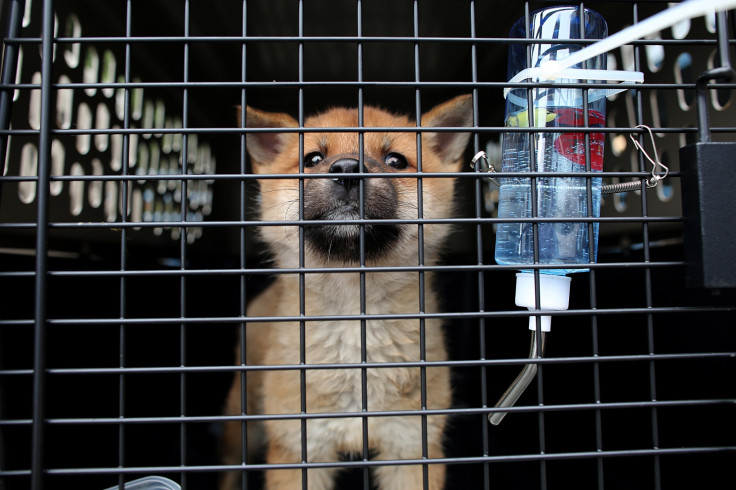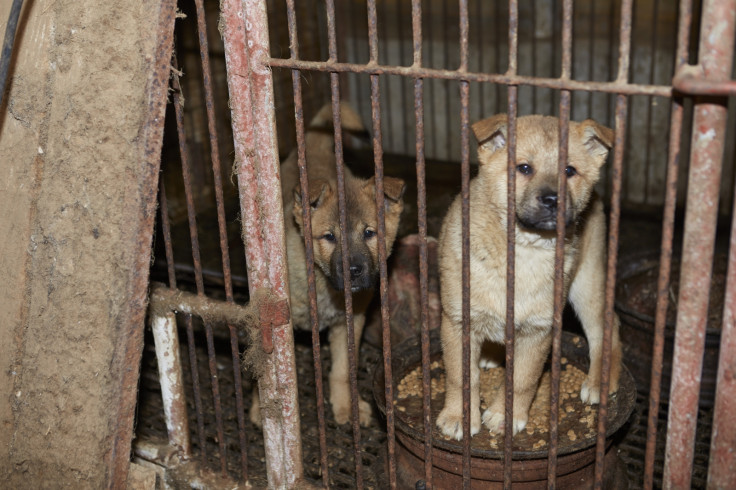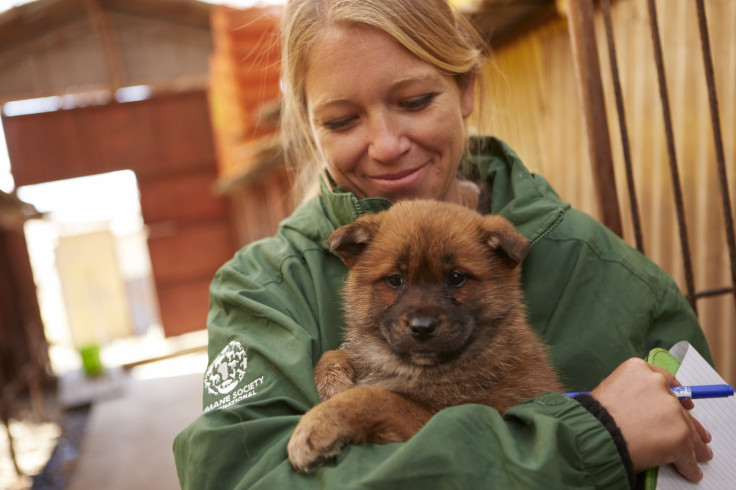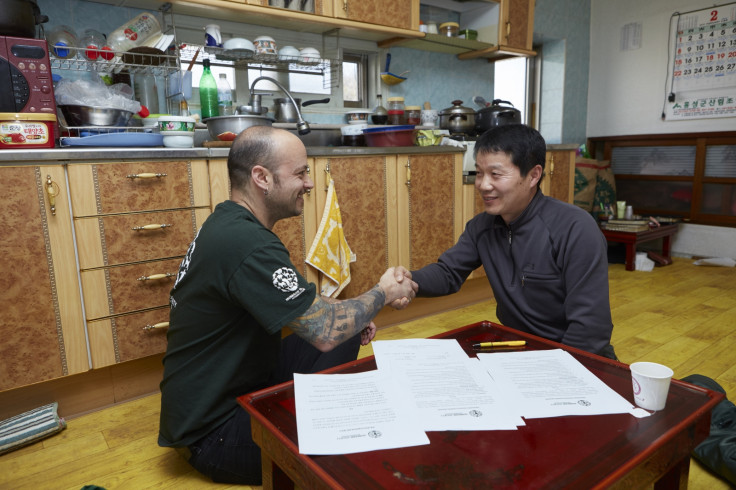South Korea dog meat farm: Mass rescue saves dozens of animals from death

More than 50 dogs have been rescued from a dog meat farm in Hongseong County, South Korea.
Members of the Humane Society International (HSI) and Change for Animals Foundation conducted a four-day operation in Hongseong to free 57 animals bound to be killed for human consumption.
The dogs were liberated from the cages they were forced to live in and were shipped to San Francisco for physical and psychological rehabilitation before adoption.
HSI consultant Lola Webber, who travelled to South Korea to take part in the operation, talked to IBTimes UK about the rescue, the second HSI conducted in the country.
"The dogs ranged from the yellow Nureongi dog, considered the traditional meat dog, to Beagles, Poodles and Chihuahuas," she said. "The dogs will be distributed among partner shelters that have the expertise and resources to treat these animals. Many of them are traumatised, especially the older dogs who have been in the farm for long time and had a very negative experience of human contact."
HSI first contacted the owner of the farm, Mr Lee, in 2011. Lee and his family said they were ashamed and expressed the desire to leave the dog meat industry.
"Lee was very keen to find opportunities to end his involvement in this field – we hear this repeatedly from both the farmers and the traders in South Korea, where predominantly older generations continue the practice of eating dogs, whose meat is widely associated to medicinal properties," Webber said.

Change is happening from within South Korean society
Webber explained the attitude of South Korean society towards dogs is changing and more people are starting to see the animals as companions.
"In South Korea, there is a widely held perception of the difference between meat dogs and pet dogs. By taking these dogs off the farm and showing that every dog is capable of becoming a companion for humans, we are trying to build that momentum that is already happening in the country, with more and more people turning against the industry and demanding for change," she said.
Every time I visited the farm I made a promise to each dog that I would be back for them and that one day they would know what life outside of the cages was like
"Rather than pointing fingers, we work by seeking collaboration with the industry itself, recognising that many involved in the dog meat solely rely on farming and selling dogs destined to human consumption. We show farmers that the change is obtainable and it is something that the government could replicate throughout the country."
Speaking about the rescue operation, Webber said: "Seeing the cages of the farm finally emptied was a very emotional moment. Every time I visited the farm I made a promise to each dog that I would be back for them and that one day they would know what life outside of the cages was like. Fulfilling that promise means the world to me."

Dog meat farmers switch to agriculture
Adam Parascandola, HSI director of animal protection and crisis response, who helped with the rescue once the dogs reached San Francisco, explained farmers who leave the dog meat trade tend to switch to agriculture.
"Although other Asian countries consume dog meat, Korea is the only country that farms dogs so we are focusing on helping dog farmers to leave the trade," he told IBTimesUK.
"The most common option for dog farmers is to transition to agriculture. The first farm we collaborated with, converted to blueberries, while the farmer [Lee] we are working with now, has indicated he wants to move to agriculture, perhaps peppers.
"The farmers do see that dog meat is a generational market as mostly older people eat dogs. They can see this is not going to be a sustainable business practice in the future, so they are motivated to try to find another line of work."

© Copyright IBTimes 2025. All rights reserved.





















